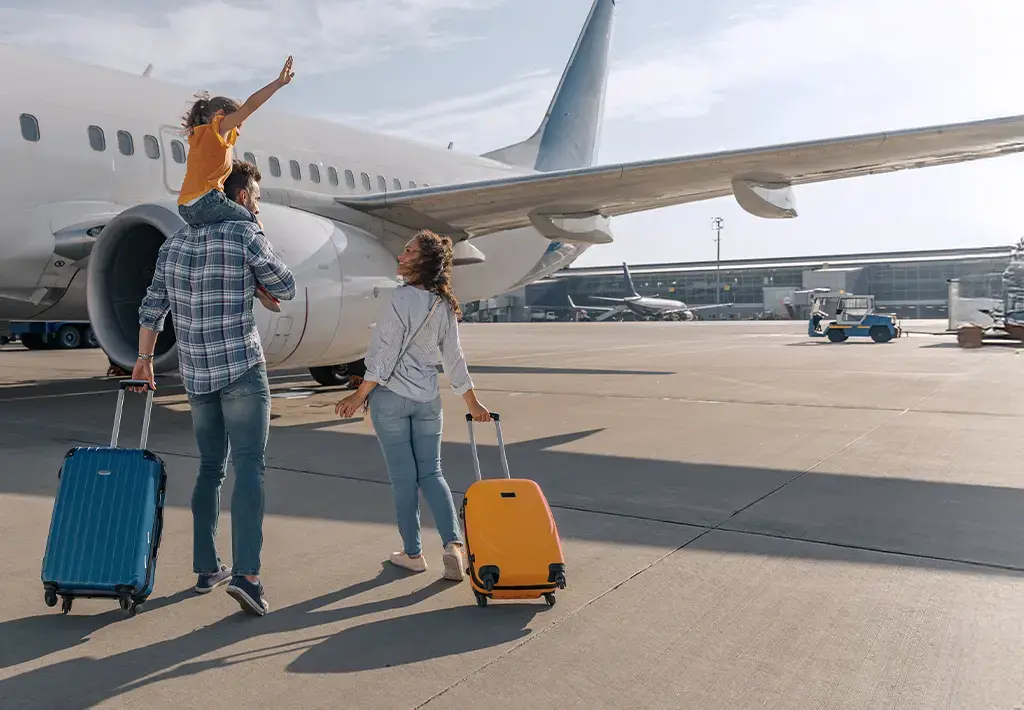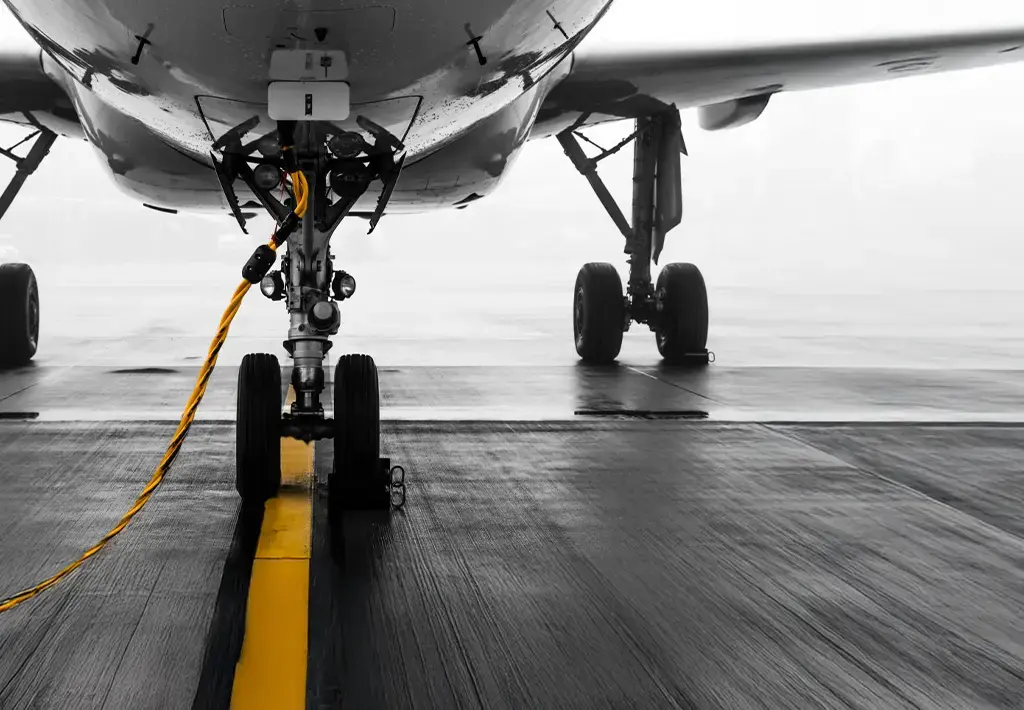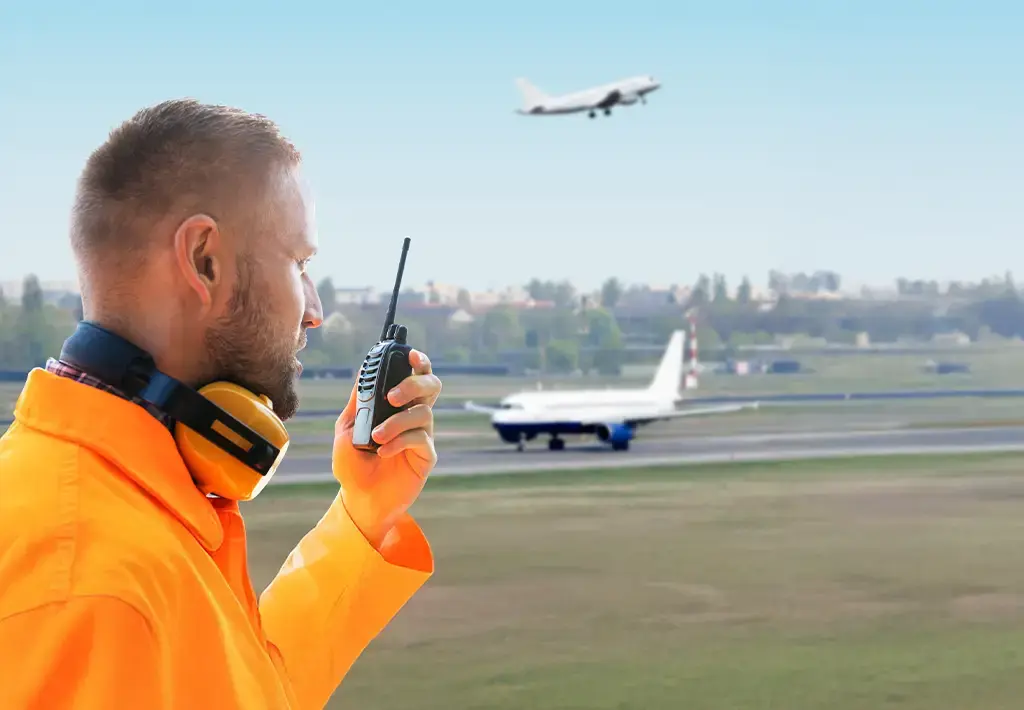Travel Tech
Cutting-edge technologies have transformed the travel industry, making journeys smoother, bookings easier and experiences more personalised than ever. From AI-powered recommendations to seamless contactless payments and virtual tours, travel tech has become the backbone of modern tourism.

What is travel tech?
Travel tech is the technology used to enhance and streamline travel-related services, from booking and transportation to accommodations and customer experiences. It includes software, apps and platforms that improve efficiency for travellers and businesses.
Travel tech can help travel companies and agencies increase booking and revenues by allowing customers to self-service their travel experience.
Forms of travel tech include flight tracking, pre-travel planning through online travel agencies and systems that allow tourists to review their experiences. Tools like contactless payments, mobile bookings and contactless check-ins streamline the booking and travel process for customers.
Travel technology is powered by AI-powered chatbots and virtual assistants, voice search and control, AR/VR, Internet of Things (IoT), biometrics and data analytics.
Travel technology examples
Several types of technology are used in the travel industry to optimise operations and streamline customer experiences. Here are some of the most common travel technologies.
Travel data analytics
By analysing booking trends, customer behaviour, and market patterns, businesses can tailor offerings to meet traveller preferences and predict demand.
Real-time analytics helps optimise pricing strategies, manage inventory and improve operational efficiency, such as minimising airport delays or streamlining hotel check-ins.
Predictive analytics supports maintenance scheduling for airlines and transportation systems, reducing downtime and enhancing safety. Additionally, analytics aids in sustainability efforts, helping businesses measure and reduce their carbon footprints.
AI/ML in the travel industry
Artificial intelligence (AI) and machine learning (ML) have several applications in the travel industry. AI can be used to provide travellers with personalised recommendations for hotels, activities and itineraries. Additionally, travel companies and agencies can use AI to dynamically price products and analyse customer behaviour.
An emerging application of AI/ML in travel is personalised service through chatbots. Chatbots can provide 24/7 customer support, make bookings, provide instant answers to FAQs, process payments and translate languages.
IoT in the travel industry
The Internet of Things (IoT) helps personalise and streamline travel experiences. Hotels that embrace IoT allow guests to control their internet-enabled devices inside their rooms with their smartphones, such as keyless entry, connected lighting and temperature controls.
IoT technology powers contactless payments and check-ins via mobile devices, QR codes on tickets and menus and smart luggage tracking with GPS and RFID trackers.
AR/VR in the travel industry
With augmented reality (AR), travellers can take room tours and explore various hotel facilities. They can also peek inside an aeroplane, ensure their carry-on luggage is the right size, access public transportation schedules, overcome language barriers and more.
Virtual reality (VR) lets travellers transport themselves to another location. For example, they can take a virtual hotel tour before booking a room or a restaurant before making a dinner reservation. Users can also transport themselves to some of the world's hottest travel destinations to feel like they were there.
Cloud solutions for travel
Cloud technology enables real-time access to information across devices, streamlining processes like booking, ticketing and customer support. Travel companies use cloud platforms to centralise operations, from inventory management to dynamic pricing and personalised recommendations. Additionally, cloud-based solutions enhance collaboration among travel agents, airlines and hotels, ensuring seamless communication and service delivery.
The cloud enables smoother travel experiences, allowing travellers to access itineraries on the go and receive instant updates.
Digital twins in travel
Digital twins are used to optimise efficiency. Airports use them to optimise passenger flow, baggage handling and predictive maintenance, while airlines simulate flight conditions to improve fuel efficiency.
Digital twins aid tourism agencies in crowd management and sustainability planning for cities and attractions. Hotels leverage them to optimise energy use and enhance guest experiences, while theme parks use them for operational insights and virtual tours.
Building a Strong Foundation: Modernising Core Systems in Aviation
Travel tech applications
Travel technology is used across the entire industry. Airlines use travel technology to automate check-ins, biometric boarding and predictive maintenance for aircraft. Hotels use travel technology for their guest management systems and automated service kiosks. Lastly, tourism boards and agencies use travel technology to access real-time data to manage tourist inflow and crowd control.
Here's a look at some typical travel tech applications and use cases:
- Booking platforms. Online travel agencies like Expedia, Booking.com and Kayak make booking plane tickets, rental cars, hotels and cruises easier for customers. These platforms are direct-to-consumer tools, enabling individuals to make reservations and compare prices in one place.
- Mobile apps. Travellers can use mobile apps for several purposes, from flight tracking, itinerary management and navigating public transportation. In-destination apps like Google Maps, language translators, ride-shares or local guides make it easy for travellers to find their way around their destination.
- Travel insurance. Travellers can quickly get instant travel insurance coverage adjustments or file a claim for lost luggage, emergency medicine or delay in the trip.
- Customer reviews significantly impact the tourism industry. Sites like Trip Advisor allow users to read, post and interact with travel experiences and attractions reviews.
- Sustainability. Technologies like IoT and AI assist in monitoring energy usage and waste reduction, enabling businesses to implement greener practices. Carbon footprint calculators, energy-efficient transportation and smart building systems help minimise resource consumption and promote eco-friendly practices.
Benefits of travel tech
Travel tech offers transformative benefits for the travel industry and travellers, driving efficiency, personalisation and innovation. Here are some of its main benefits:
- Enhanced efficiency. Travel companies, agencies, and customers benefit from enhanced efficiency through automation, real-time updates and optimised operations, which streamline the booking and travel experience.
- Improved customer experience. AI-driven algorithm offers tailored recommendations, while contactless payments, mobile boarding passes and automated check-ins create frictionless travel experiences. Additionally, chatbots and AI-powered assistants offer 24/7 virtual support.
- Cost savings. Travel tech powers dynamic pricing, allowing companies to adjust prices in real-time based on demand to maximise revenue and offer competitive rates for travellers.
- Data-driven insights. Analytics helps businesses understand travel trends, behaviours, and market demands. It can also help with predictive maintenance and optimise resource allocation.
From sustainability-focused tools to AI-driven personalisation, technological advancements offer endless opportunities to improve both convenience and satisfaction for travellers and businesses. By embracing travel technology solutions, the travel industry can unlock greater efficiency, create memorable customer experiences and pave the way for a smarter, more sustainable future in tourism.
Further reading
Check out these resources for more information about how to use travel tech in people-centric innovation.


